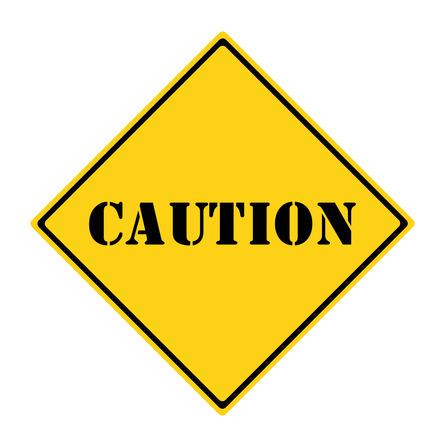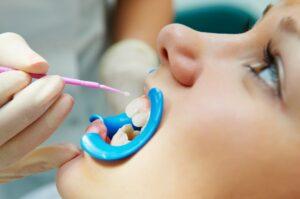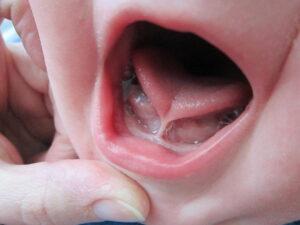You’ve likely seen the news story that went viral over the last week or two about a pediatric dentist in Florida abusing his young patients and committing a whole bunch of other wrongs in his practice. If you haven’t, the link is below, but be warned that it will make you feel sick and angry when you read it. It certainly incensed me when I first read the story on Facebook.
http://www.wtsp.com/story/news/2015/05/23/controversial-local-dentist-relinquishes-license/27871271/
This dentist has surrendered his license and faces at least ten lawsuits hanging over his head for malpractice and neglect. While I pity the man, I have no sympathy for Dr. Howard Schneider; this guy knew what he was doing and it is clear that all of his actions and office protocols were calculated, voluntary, and habitual. What I do wonder is how a dentist could get to this kind of low point. I assume he learned the right way to do things in dental school and in his pediatric dental residency. I want to give him the benefit of the doubt when he was younger; he likely didn’t become a full-blown dental criminal overnight. So what happened? Did he get lazy in his habits? Did he think safety protocols weren’t a big deal? Was money more important to him than doing a good job? Was money more important than ethics to him? Did he hate his chosen profession? Was he a slave to his financial situation and felt compelled to overcharge and overdiagnose? The answer is probably complex and forever a mystery to us, but I would bet anything that his bad habits built up over time and eventually ballooned into something out of his control. A little dishonesty here and a little job burnout there may have slowly shaped a career that is clearly full of dishonesty and neglect. I may be completely wrong, but I have a hunch that this is at least partially true.
While it is difficult for me to see any good coming from a terrible story like this, there are a few lessons to be learned from it. Here in the Orem and Provo area I think we are fortunate to have a lot of really skilled and caring dentists around, but there are still a few places out there that make some very questionable decisions in my opinion. Most of these bad decisions are probably small things, but over time they can become a huge deal. Here are some thoughts I have had over the last week as I’ve thought about Dr. Schneider:
- There is a difference between a bad outcome and bad work. Even the most skilled and careful dentist will experience bad outcomes from time to time. For example, sometimes a filling close to the nerve area of the tooth will hurt in spite of heroic attempts to make it as comfortable as possible. In cases like these, good communication is important.
- On the other hand, bad work might happen to the best from time to time as well. In our office we offer a retreatment policy where if something is wrong, we take care of it to our patients’ satisfaction. Luckily, we don’t have to use this policy very often, but I think having such a provision is an important part of taking good care of people. I would be wary of any office that doesn’t stand by their work or seems focused on speed over quality.
- Some offices—even a few in Utah Valley—nickel and dime their patients whenever possible. This makes me angry. Specifically, here are some of the dubious practices I’ve learned about: charging a fee for each individual anesthetic carpule used, using cheap crown materials, charging an “upgrade fee” for quality crown materials that should be standard, sending crowns to labs in China (lead crown, anyone?), charging for seating a crown that was already paid for, reusing disposable supplies instead of throwing them away, having no set fees and charging higher treatment fees to certain patients, etc.
- Overly-aggressive diagnosis is a real problem in some places, even here in the Orem and Provo area. Insurance companies tell me that multi-location “chain” offices are especially problematic for them. In fact, one claim review agent told me that this is the primary reason insurance companies are so hard to work with for all other dental offices; because certain offices abuse the system, everyone else has to deal with the fallout of their “bending” the rules. Not infrequently I am asked for a second opinion on dental treatment recommended by another office. Most of the time, my estimation is very close to what the previous dentist recommended, but there are a couple offices (which I won’t name here, even though I really want to call them out publicly) that routinely diagnose way too aggressively. Beware of these guys.
- Informed consent is a big deal. This means that before any treatment is rendered, a patient is properly educated about alternatives, cost, risks, benefits, etc. Any office that ignores this principle—more accurately this legal requirement—is way on the wrong side of the line. This is especially true for pediatric offices. Your minor child should never have treatment done without you being aware.
- It is a fact that children generally behave better at the dentist when their parents are out of the room. Rather than acting as moral support, a hovering mother can sometimes contribute to a child behaving badly. Because of this, a lot of great pediatric dentists recommend that parents stay in the reception area while their child is being treated. This concept can be taken way too far though. If a parent wants to be with their child, they should have that right. I wouldn’t trust any doctor or dental office where the staff was adamantly opposed to my being with my child in spite of my objections.
- Here’s a revelation: children don’t like shots and they don’t like getting dental work done (neither do adults!). Most kids actually do pretty well in the dental chair, but other kids cry and complain the whole time even during noninvasive procedures like sealants. Tears at the dental office are not abnormal; shots and other unfamiliar things can be scary and intimidating for anyone. That being said, it’s usually not too difficult to tell whether numbness is adequate or not. Just as a mother can tell if her baby is hungry or in pain by the sound of the cry, it’s not that hard to differentiate between anxiety and pain in the dental chair for children. There is no way Dr. Schneider could innocently err on that concept over and over again over a whole career.
- Pediatric dentistry is a specialty within dentistry. Specialists depend on doctor referrals much of the time for their business. From time to time, Dr. Payne and I refer our patients to specialists such as orthodontists, endodontists, periodontists, oral surgeons, and pediatric dentists. This is an extremely big deal to us and we don’t just randomly refer to anyone. In most cases, we meet with the specialists before referring to them and review cases they have completed. Even more importantly, we listen carefully to our patients when they tell us of their referral experiences to specialist offices. We feel that these experiences are a reflection of the care we provide in our office and only send our patients to doctors we trust. Dr. Schneider probably had a mostly Medicare base, but I wonder if he had any general dentists who referred to him. If so, I wonder what they are thinking now. I wonder what criteria they used to select him as their preferred pediatric office.
-Nicolas K. Young, DMD








